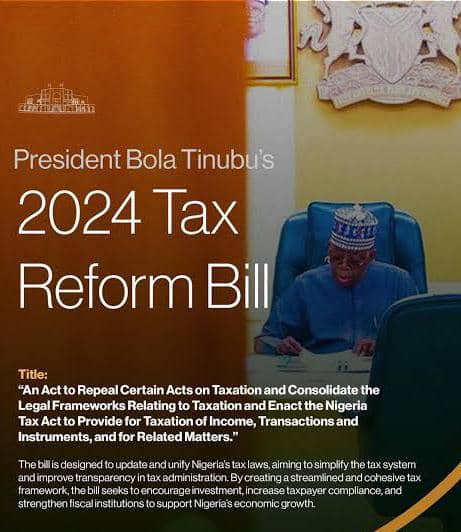Taiwo Oyedele, the Chairman of the Presidential Fiscal Policy and Tax Reforms Committee, clarified on Monday that the primary goal of the tax reform bills currently under review by the National Assembly is to address Nigeria’s economic challenges and foster shared prosperity, rather than simply increasing revenue as is often claimed.
Speaking during a panel discussion on Channels Television’s Townhall on Tax Reforms, Oyedele emphasized that the focus of the reforms is on fixing the country’s economic issues, such as widespread poverty, insufficient growth, and the lack of inclusive and sustainable development.
He acknowledged that the country faces numerous challenges but stressed that the fiscal and tax systems are central to resolving them.
Oyedele explained, “Our economy is underperforming. We are not growing enough, poverty is widespread, and we do not have inclusive growth. There can’t be shared prosperity unless we address these fundamental issues. The fiscal system, particularly taxation, is a major part of that.”
He rejected the idea that the tax reforms are aimed at merely increasing government revenue, stating, “The main objective of the reforms is not to generate more revenue, but to fix the economy in a way that enables shared prosperity. If businesses are thriving and individuals are earning income, taxes will naturally follow.”
The reforms, which have sparked disagreement among state governors, were also criticized by Borno State Governor Prof. Babagana Zulum, who called for the bills to be withdrawn for further consultations.
He argued that the bills would harm the economy of the northern region.
Oyedele, however, countered these concerns, stating that many of the critics had not fully examined the bills.
He also addressed the perception that the presidency and National Assembly were working together on the bills, explaining that the aim was to complete the reforms within a year, given Nigeria’s pressing need for timely solutions.
“We don’t have the luxury of time,” Oyedele said. “If we waited for four or five years, it would delay necessary reforms. We decided to act quickly to rewrite outdated tax laws inherited from the colonial era to better suit Nigeria’s future prosperity.”
He further noted that the reforms aim to benefit low-income earners, with provisions that would exempt those earning up to N83,000 a month (or N1 million per year) from taxation.
Oyedele emphasized that the tax reforms are not only a technical fix but a strategic step toward improving the country’s economic framework for long-term prosperity.

















